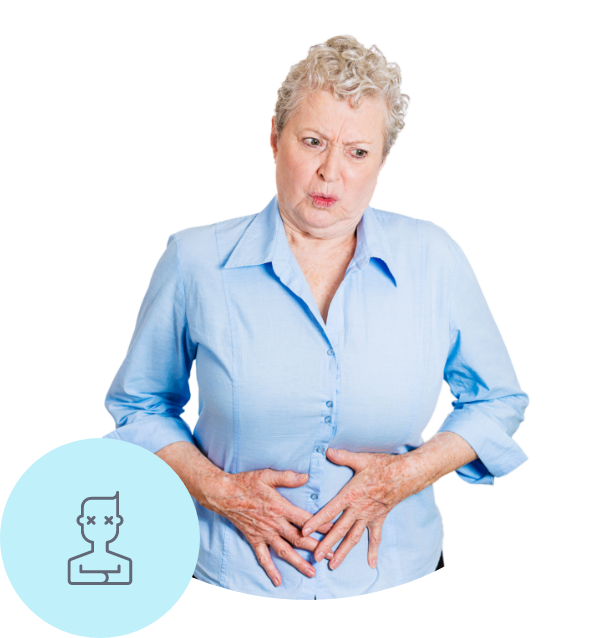Bowel Incontinence
Even though Covid is typically classified as an upper respiratory virus, the symptoms of this illness can affect many other parts of the body. For example, some patients experience bowel incontinence while they have Covid, and these digestive issues continue to linger long after recovery.
Patients experiencing long-hauler Covid symptoms might have ongoing bowel incontinence or bladder incontinence. If you are experiencing these symptoms, it’s time to talk to a post-Covid specialist for a diagnosis. Then, our team can design a personalized treatment plan to help you manage these symptoms.

Common Incontinence Issues After Covid
After having Covid, you might experience some of these ongoing issues with bladder and bowel incontinence:
- Stress Incontinence: A moment of physical stress can cause a urine leak or bowel movement, such as sneezing, coughing, exertion, or making a sudden movement.
- Constipation: Difficulty with bowel movements because stools are hard to pass or emptying your bowels less than 3 times per week.
- Diarrhea: Frequent, runny bowel movements that cause an urgent need to use the bathroom.
- Bladder or Bowel Frequency: The need to use the bathroom more frequently than normal (more than 8 times per day).
- Bowel Incontinence: An inability to hold stools or wind during the day.
- Nocturia: Waking up more than 2x per night to use the bathroom.
Are you experiencing any of these symptoms that developed after having Covid? Then you might benefit by talking to a post-Covid medical specialist to learn more about available treatment plans.
Post-Covid Treatments for Bowel Incontinence
There are different treatment options to explore, depending on the type of bowel incontinence you are experiencing. Our team at CovidEMT starts with a thorough diagnosis and consultation to understand your symptoms. Then, we custom-design the treatment plan to match your unique needs.
Dietary habits can play a role in bowel movements, so your provider will discuss your diet. For example, patients suffering from constipation can benefit by increasing their fiber intake and drinking plenty of water throughout the day.
Sometimes, medications are needed to manage the symptoms, such as stool softeners, laxatives, or anti-diarrheal drugs. You can try lower dosages with over-the-counter medicines, as your provider recommends. Or, severe symptoms might require a prescription.
Finding an effective treatment to prevent complications from bowel incontinence is important. Untreated constipation can put pressure on the colon and digestive tract, potentially resulting in other serious health issues. On the other hand, unmanaged diarrhea can result in accidental bowel leakage and other concerns.